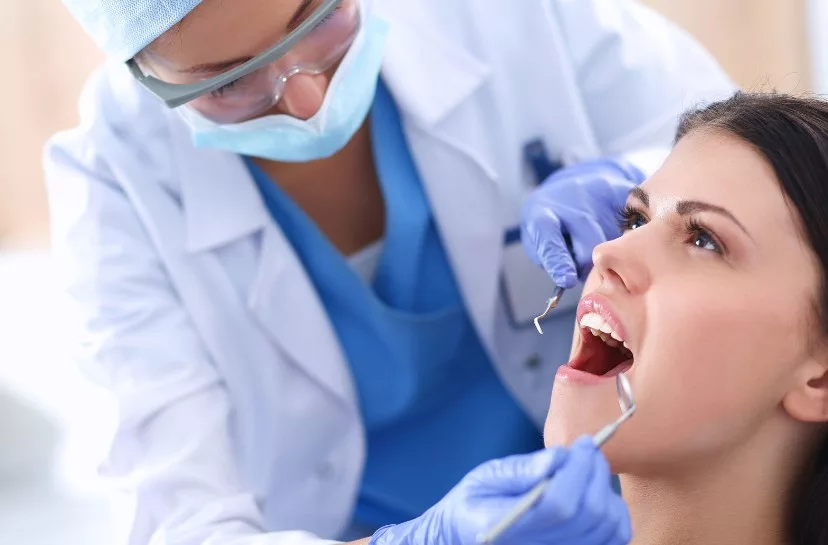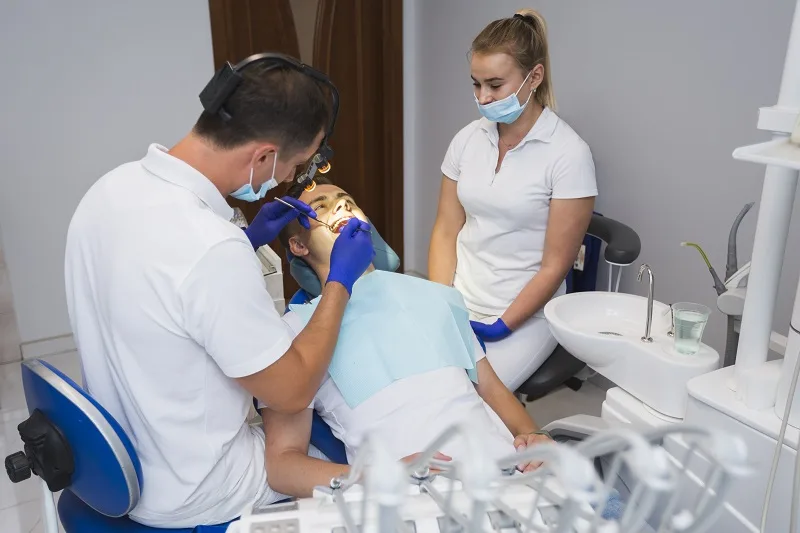Maintaining good oral health is essential for achieving a beautiful smile and overall well-being. Our oral cavity plays a crucial role in our daily lives, allowing us to eat, speak, and convey our emotions. However, many people neglect the importance of oral health and fail to realize that poor oral hygiene can lead to various problems, including tooth decay, gum disease, and bad breath.
Taking care of your oral health goes beyond just having a bright smile. It also contributes to your overall health and can prevent serious medical conditions such as cardiovascular disease and diabetes. Therefore, it is essential to prioritize your oral health and establish a regular oral hygiene routine.
Common oral health problems
Neglecting your oral health can lead to a range of common problems that may affect your teeth and gums. One of the most prevalent issues is tooth decay, which occurs when harmful bacteria in your mouth produce acids that eat away at the tooth enamel. This can lead to cavities and tooth sensitivity. Another common problem is gum disease, which affects the tissues surrounding and supporting the teeth. If left untreated, gum disease can progress and lead to tooth loss.
Bad breath, also known as halitosis, is another oral health problem that can be embarrassing and indicate underlying issues. Poor oral hygiene, dry mouth, and certain foods can contribute to bad breath. Additionally, oral health problems can impact your self-confidence and social interactions, highlighting the importance of maintaining good oral hygiene practices.
Expert tips for improving oral health
To achieve optimal oral health and a beautiful smile, it is crucial to follow oral health expert tips and best practices. Here are five key recommendations from dental professionals:
1. Proper brushing and flossing techniques
Brushing your teeth at least twice a day and flossing daily are fundamental steps for maintaining good oral hygiene. However, it is equally important to ensure that you are using the proper techniques. Dentists recommend using a soft-bristled toothbrush and gentle, circular motions to clean your teeth. Pay attention to each tooth’s surface, including the front, back, and chewing surfaces. Additionally, don’t forget to clean your tongue, as it can harbor bacteria and contribute to bad breath. When flossing, be gentle and glide the floss between your teeth, reaching the gumline to remove plaque and food particles.
2. The role of a healthy diet in oral health
A nutritious diet is not only beneficial for your overall health but also plays a significant role in maintaining good oral health. Avoid excessive consumption of sugary and acidic foods and beverages, as they can contribute to tooth decay and erosion. Instead, opt for a balanced diet that includes plenty of fruits, vegetables, lean proteins, and whole grains. These foods provide essential nutrients that strengthen your teeth and gums. Additionally, drinking plenty of water helps to rinse away food particles and promote saliva production, which aids in neutralizing acids and protecting your teeth.
3. Regular dental check-ups and cleanings
Regular visits to your dentist are crucial for maintaining good oral health. Dental professionals can detect early signs of oral health problems and provide appropriate treatment before they worsen. It is recommended to schedule dental check-ups at least twice a year, or as advised by your dentist. During these visits, your dentist will perform a comprehensive examination, including a professional cleaning to remove plaque and tartar buildup. They may also take X-rays to identify any hidden issues. These routine check-ups and cleanings are essential for preventing oral health problems and ensuring a beautiful smile.
4. The benefits of using mouthwash and other oral hygiene products
In addition to brushing and flossing, incorporating mouthwash into your oral hygiene routine can provide additional benefits. Mouthwash helps to kill bacteria, freshen breath, and reduce the risk of gum disease. Look for mouthwashes that contain fluoride to strengthen your teeth and prevent tooth decay. Along with mouthwash, consider using other oral hygiene products, such as dental floss picks, interdental brushes, and tongue scrapers, to enhance your oral health routine. These products can help to remove plaque and bacteria from hard-to-reach areas, promoting a healthier mouth.
5. How to choose the right toothpaste and toothbrush
Choosing the right toothpaste and toothbrush is essential for maintaining good oral health. When selecting a toothpaste, look for one that contains fluoride and has the American Dental Association (ADA) seal of approval. Fluoride helps to strengthen your tooth enamel and prevent tooth decay. As for toothbrushes, opt for a soft-bristled brush that can effectively clean your teeth without causing damage to the enamel or gums. Consider using an electric toothbrush, as it can provide a more thorough clean and remove plaque more effectively.
Additional tips for maintaining a beautiful smile
In addition to the expert tips mentioned above, here are some additional recommendations for maintaining a beautiful smile:
- Limit your consumption of staining foods and beverages such as coffee, tea, and red wine.
- Avoid tobacco products, as they can stain your teeth and contribute to oral health problems.
- Protect your teeth during sports activities by wearing a mouthguard.
- Practice stress management techniques, as stress can contribute to teeth grinding and jaw clenching, leading to oral health issues.
- Use a straw when consuming acidic or sugary beverages to minimize contact with your teeth.
By following these tips and adopting good oral hygiene practices, you can achieve a beautiful smile and improve your overall oral health.
Conclusion
Achieving a beautiful smile goes beyond aesthetics; it requires prioritizing and maintaining good oral health. Neglecting oral hygiene can lead to various problems, including tooth decay, gum disease, and bad breath. By implementing expert tips such as proper brushing and flossing techniques, following a healthy diet, scheduling regular dental check-ups, using mouthwash and other oral hygiene products, and choosing the right toothpaste and toothbrush, you can significantly improve your oral health. Additionally, incorporating additional tips like limiting staining foods and beverages, avoiding tobacco products, wearing a mouthguard during sports, and practicing stress management can further contribute to maintaining a beautiful smile. Remember, a healthy smile is a reflection of overall well-being. Start prioritizing your oral health today for a lifetime of smiles.





